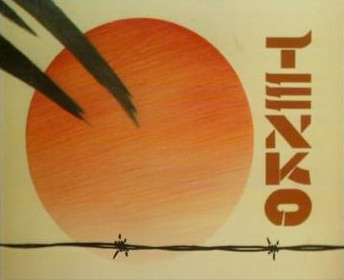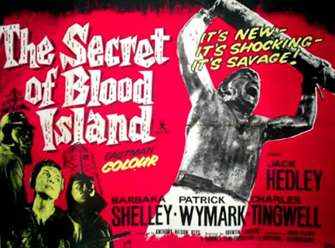- :
- Unknown
- needed to precede following dl
- :
- :
- 80 minutes (Uncut)
- Review Format:
- DVD
- :
- 1957
- :
- Predominant Genre:
- War
- Director:
Director Val Guest 
- :
Outstanding Performances Barbara SHELLEY 
- Premiss:
- Wartime brutality and sadism.
- Themes:
- Aggression | Emotional repression | Narcissism | Political | Political Correctness | Propaganda | Sadomasochism | Schizophrenia | Snobbery | Solipsism | Stereotyping | Terrorism | Totalitarianism | The West | White culture | White guilt | White people | White privilege | White supremacy
- :






- Spin‑offs:

Jap War Crimes Exposed!
Although well-made, this is the usual White whining about how awful Japanese imperialists were - with no mention of how awful British imperialists were. (For a film set in the past, it is completely lacking in historical context, as if the events depicted had only happened on another planet.)
Rank with the hypocrisy of White supremacy, this is an angry movie made by Whites who think only they have the right commit atrocities they conceal, while other ethnic groups must be tried for their crimes. This anger at such barbarous behavior comes from those who did not experience it at first-hand; making it feel like a tale told by an armchair brigadier; imagining the combat he would fear to face in real life. More the product of White supremacist anger, bitterness & resentment than an exposé of inhumanity: It is Lest we forget
– when Whites are degraded – but Get over it!
, when anyone else suffers.
The Japanese are racially‑stereotyped in a way that Germans (in White war movies) never are. The implication that Asians are genetic inferiors and, thus, much more prone to such barbarity is belied by the equally-barbarous Caucasian cruelty, sadism & savagery of the British Empire; revealing Caucasians to be just as potentially awful as the Asians condemned here.
The Japanese are poorly-characterized and their fears masked by their sadism are not dramatically explored; leading us to the White supremacist conclusion that they are somehow less than human beings. Even the White characters the film focuses upon are little more than ciphers‑to‑be‑abused - the excellent actors doing the best they can with underwritten parts.
Despite claiming to show the brutal reality of some human nature as honestly as possible, this movie has no real understanding of that nature. It is a fundamentally‑dishonest and amoral pretense; allowing Whites to wallow in the degeneracy of others in order to occult their own and, in the process, claiming Aryan supremacy over those they ultimately defeated for preaching and practicing Whites’ own, selfsame political & moral ideology: A classic example of smashing a mirror because of the terrifying accuracy of its reflection.
The rampant hypocrisy of Whites in rarely exposing Caucasian war crimes is elided here in favor of claiming the movie is based on actual events. But this does not excuse the one‑sided portrayal of those events: If it did, then the Nazi extermination of 6,000,000 Jews would be fully justified - at least from the Nazi point‑of‑view.
Despite fine acting, the screenplay lacks a political context that would explain the behavior on show, allow audience empathy and, thereby, reach some kind of understanding of the events depicted. Fully‑realized characters in drama exist precisely for the purposes of empathy, yet the only empathy the film seeks is that of a White audience for its White characters, in commercially‑exploiting the White supremacy inherent in White culture. This supports the White delusion that only other ethnic groups can ever be institutionally‑barbaric, but not the fact that the Japanese in East Asia were little more than the Eastern counterpart of White, Western barbarity.
This stance of Caucasian propaganda is maintained throughout and remains entertaining despite it offering only the pornographic and pseudo‑cathartic sensational release – without an emotional or a spiritual dimension – so typical of White supremacy. Unlike its contemporaries (eg, A Town Like Alice or The Bridge on the River Kwai) this film is deliberately shot as a horror movie, rather than as a less melodramatic and more insightful work; counter‑productively trivializing the suffering on show in offering a nightmare‑without‑meaning, rather than an example of how real people respond to genuine adversity, in terms of human suffering and inhumanity and the will to endure despite the odds.





No comments:
Post a Comment